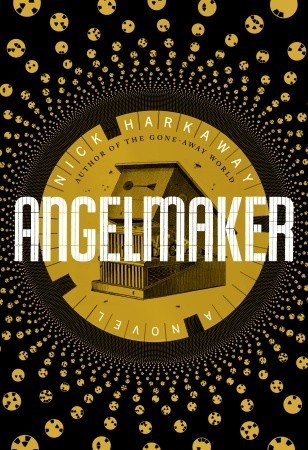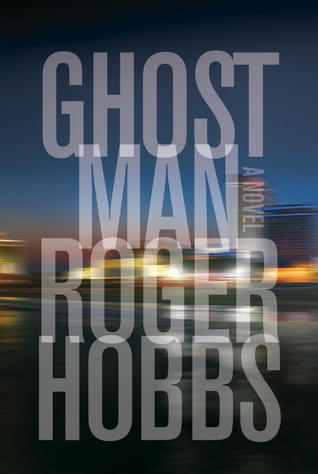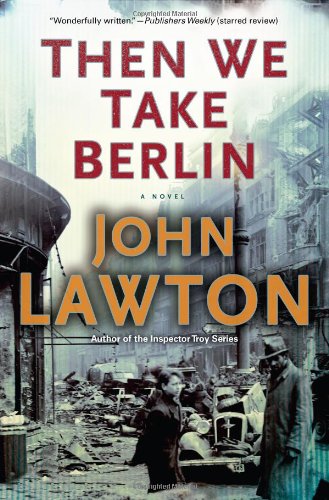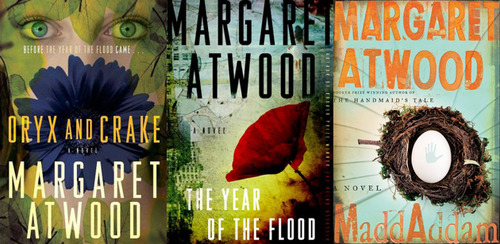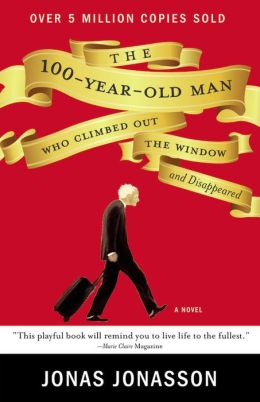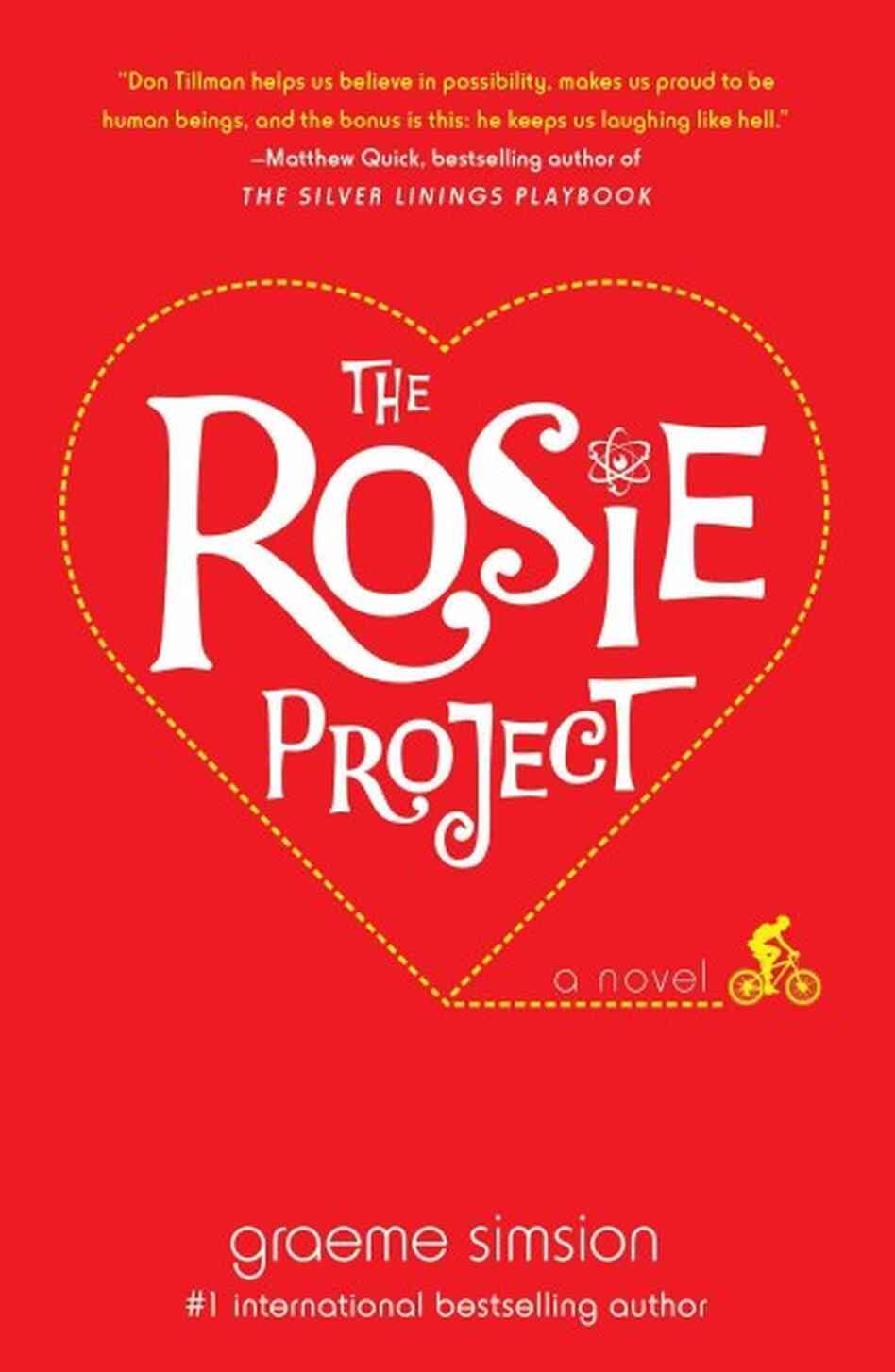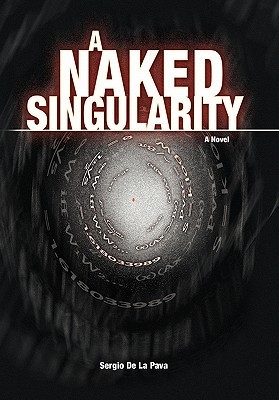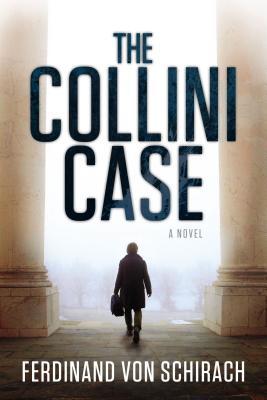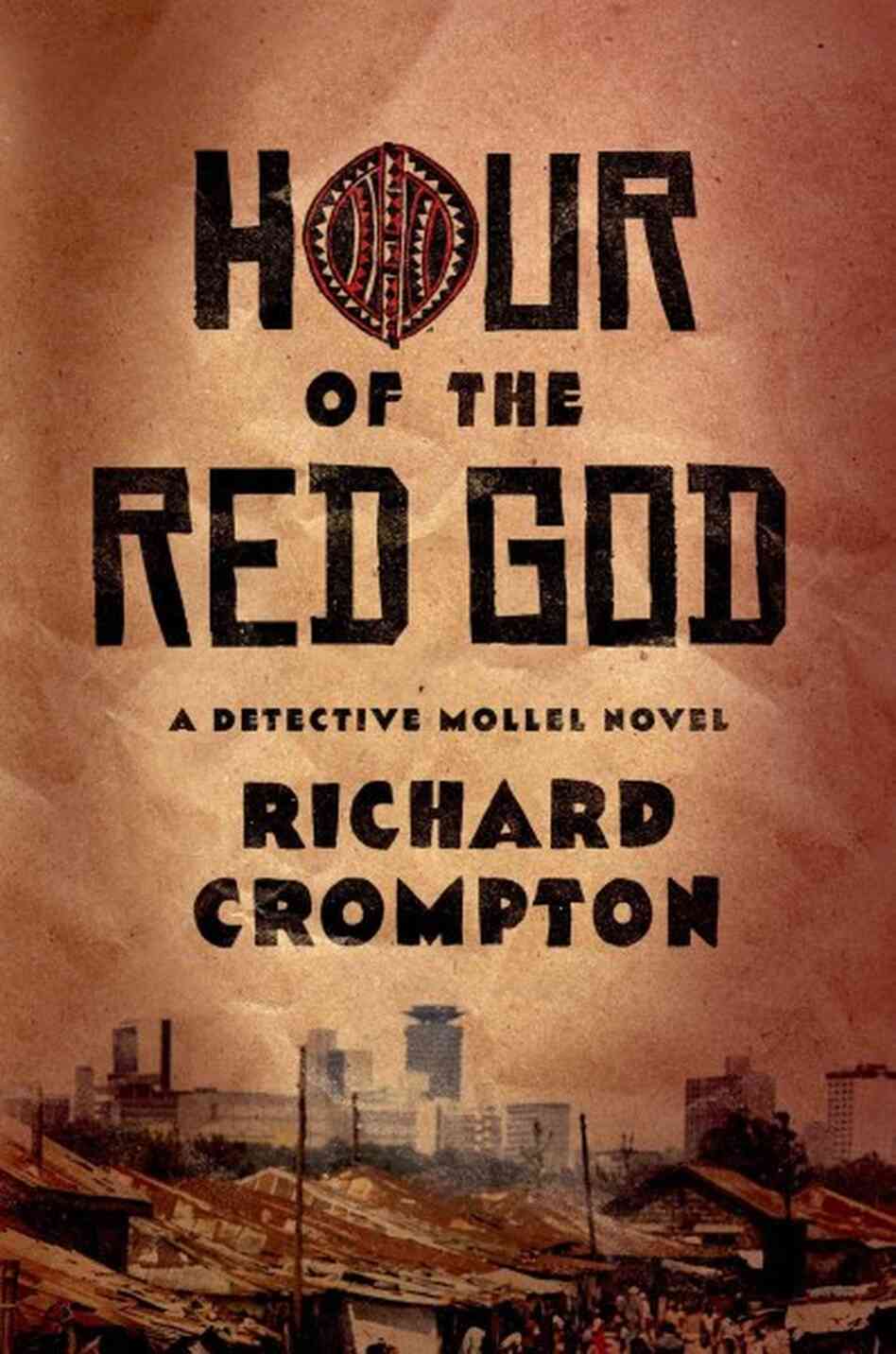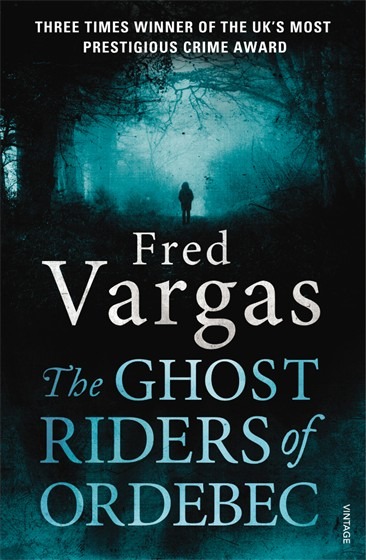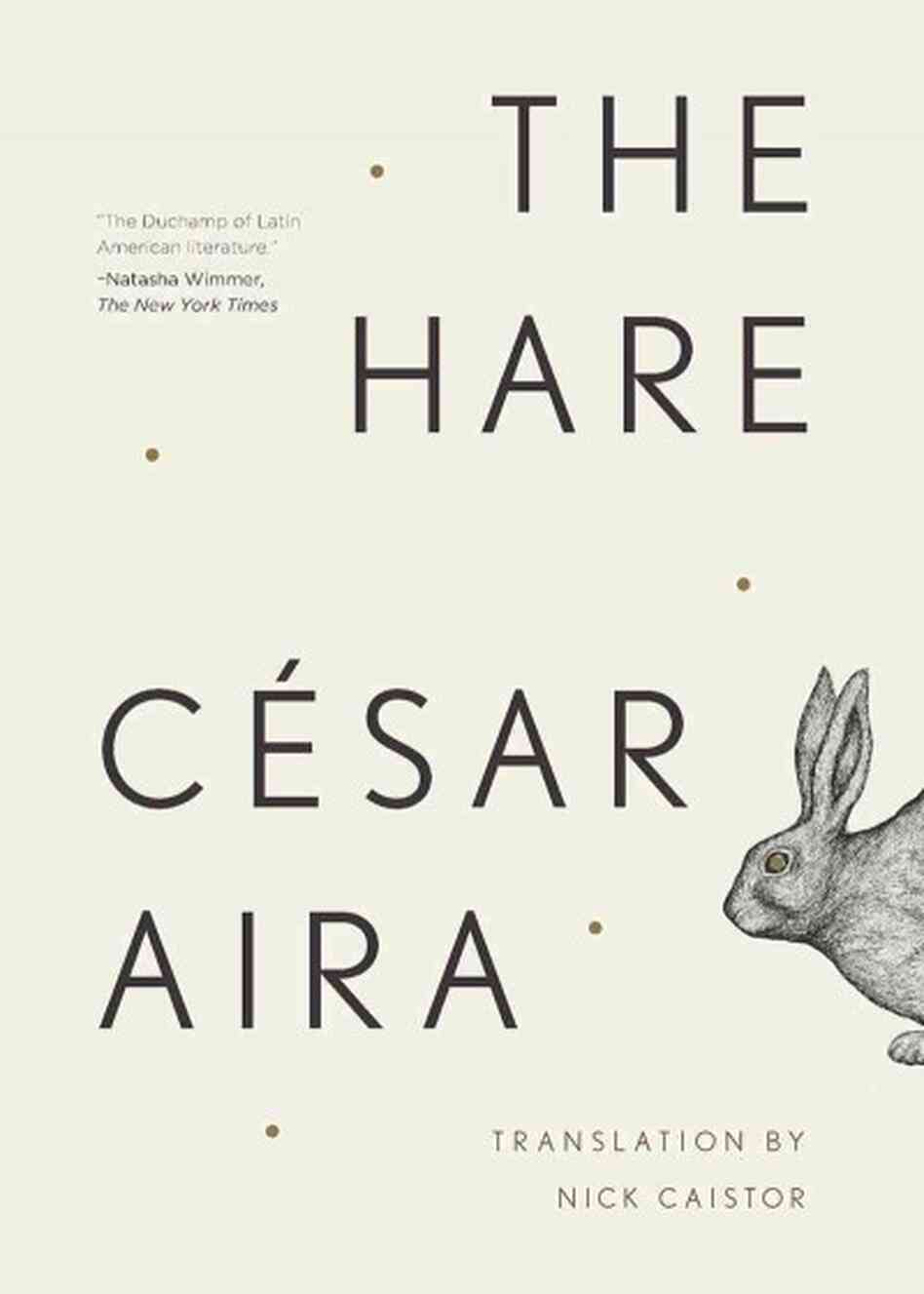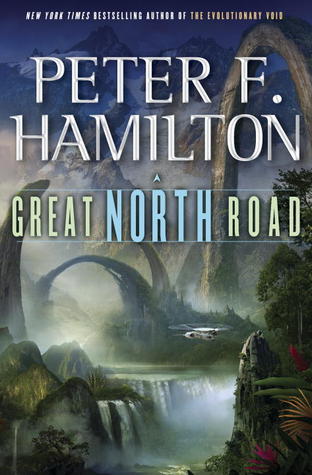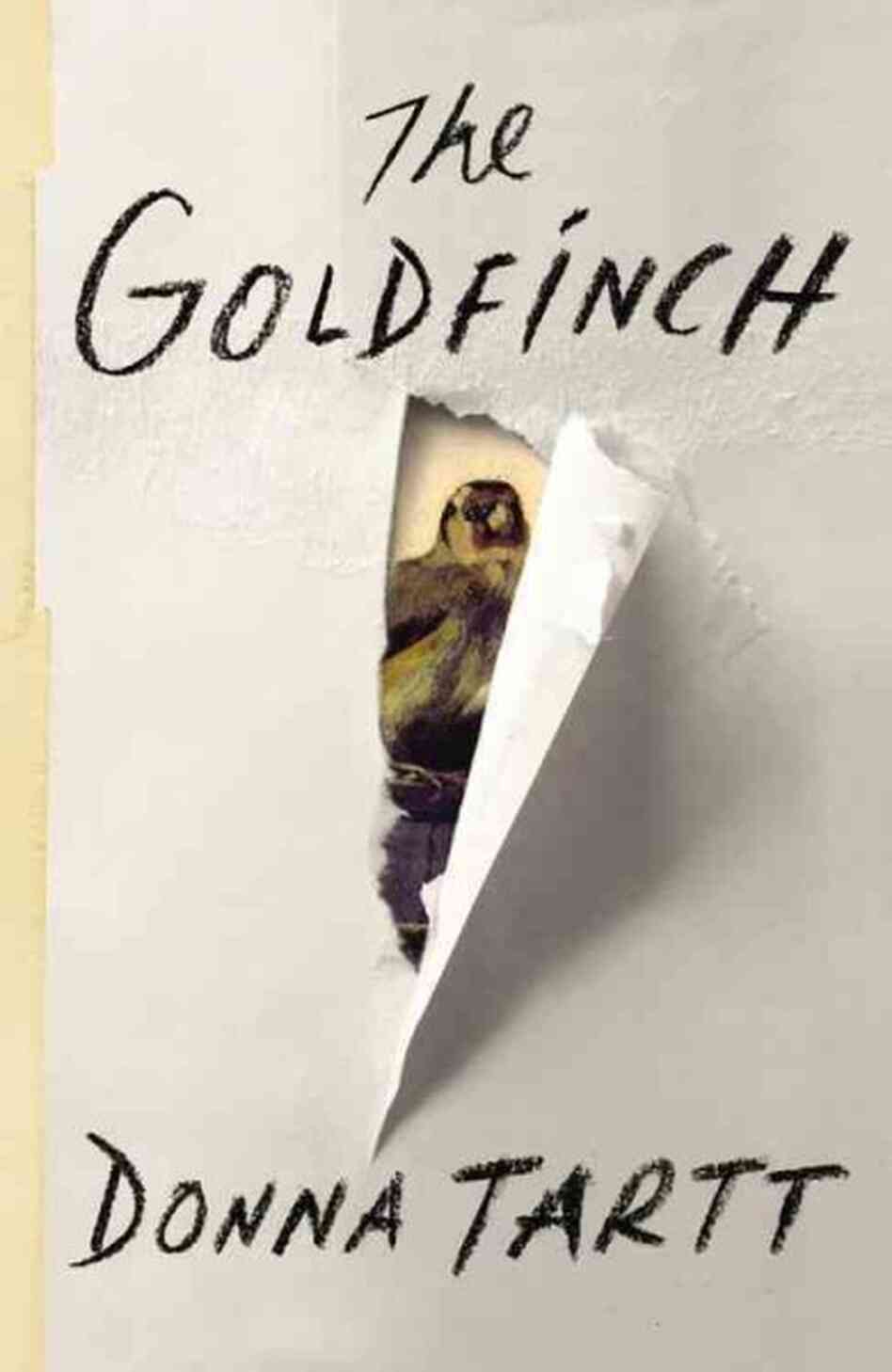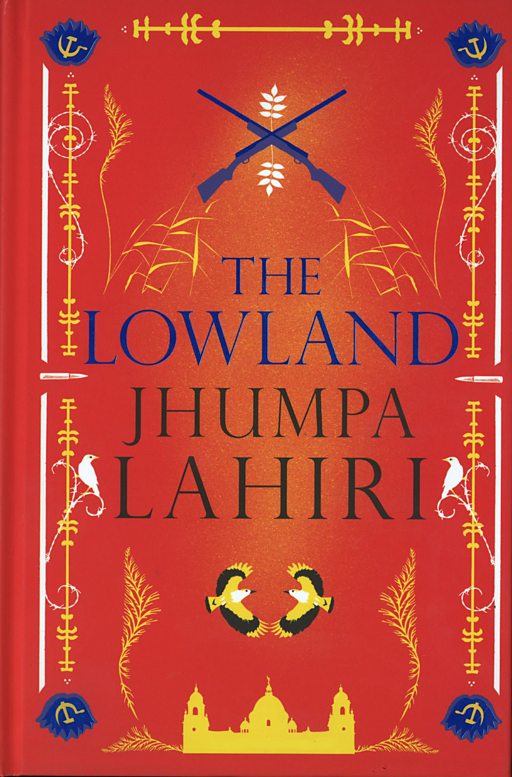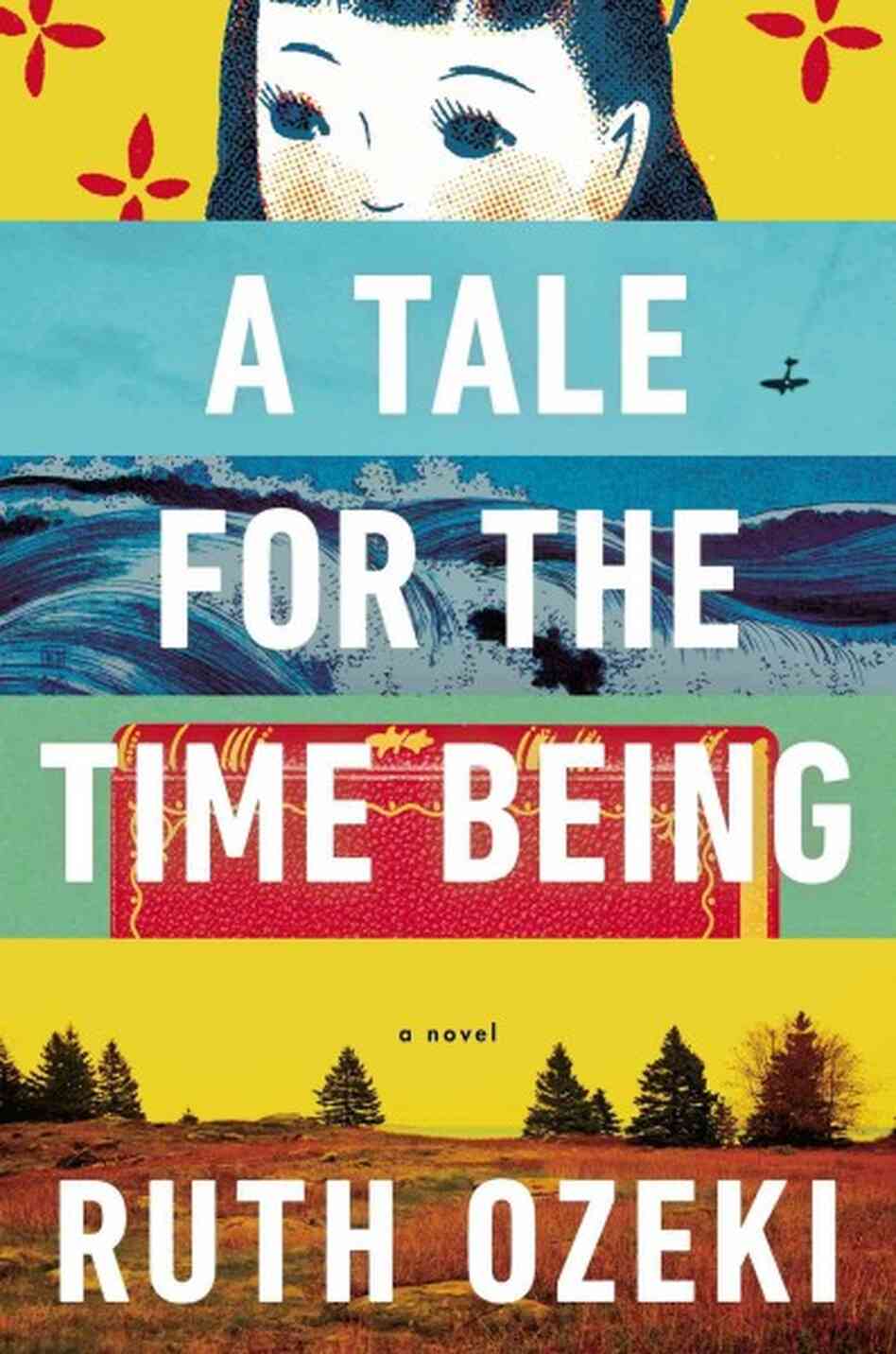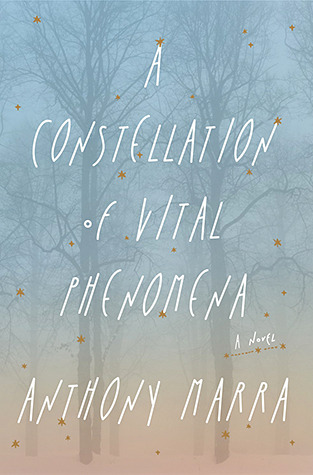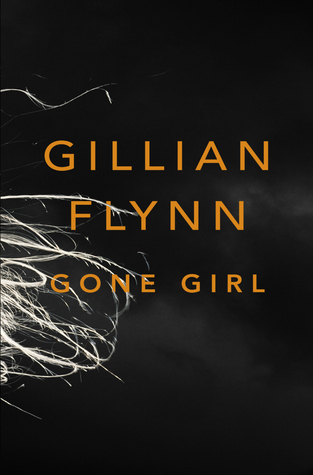 Sister Mary Murderous
Sister Mary Murderous: One of my favorite times of the year on
Read Me Deadly is our annual year-end torture of Georgette Spelvin. Every December, one of us suggests that we do a "best reads of the year" post, and Georgette immediately begins banging her head against the wall.
This year, we decided to call it a "notable books" post, just to see if that would help Georgette avoid a concussion. It's our little holiday gift to her.
My first notable books question for the gang is: What non-mystery books did you read this year that you think would make good book club reads for 2014?
Georgette Spelvin: Okay, Sister Mary, I admit I have a phobia about compiling a list of "best reads" or even "favorite books." I'm relieved that Maine winters haven't frozen your heart so solid you can't give me the gift of "notable books," and if I add the word "some" to that phrase, I can calm down for a conversation.
A book I really enjoyed reading this year is
The Son (Ecco, 2013), Philipp Meyer's spectacular version of the Great American Novel, focusing on three members of the McCullough family, born 50 years apart in Texas, from the pre-Civil War days to post-9/11. (Philipp Meyer is the guy who wrote
American Rust, a novel about the human cost of the Rust Belt's economic ruin.) The Great American Novel, settling of Texas, treatment of Indian tribes, the Civil War, the American ideal of rugged individualism, the immigrant experience, family ties, Big Oil—man, there is plenty here to discuss.
Della Streetwise: I like the sound of
The Son but my suggestion is for the world of art, joy of speed, Italian motorcycles, violence, protest movements and falling in love set in 1970s New York and Italy: Rachel Kushner's
The Flamethrowers (Scribner, 2013). Reno is a young college grad from Nevada and her arrival on the New York art scene before launching off to Italy is a trip worth taking and talking about in book club.
SMM: I'm so hoping my book club will opt to read Kate Atkinson's
Life After Life (Reagan Arthur Books, 2013; reviewed
here). Most of all, I want to see what people think about two chapters, one at the beginning and one at the end, that are almost, but not quite, identical. I'm anxious to hear what people think the differences mean. In fact, I've been waiting for months to have that conversation.
Periphera: Sister, I also read and enjoyed
Life After Life, and asked myself a corollary question about those bracketing passages: if that were so, what alternative topic would engage Sister MM so thoroughly?
Georgette: None, if we know our Sister, Peri. I did so much re-reading and pondering of
Life After Life, I felt like an archaeologist doing an excavation. I loved it. I can't imagine anyone reading it and not wanting to discuss it.
SMM: Another book about different lives a woman might lead is Andrew Sean Greer's
The Impossible Lives of Greta Wells (Ecco, 2013). Through some unusual experiences, Greta cycles through lives in 1985, 1918 and 1941. She gets to ask herself the question asked of another woman: "When you were a little girl . . . was this the woman you dreamed of becoming?"
Maltese Condor: I was fascinated by the wonderful options Greta might have had during her visits to other eras. That question I asked myself was what I would do if I had her choices. Everyone talks about the good ole days, but would I choose the past over the bad new days? I don't think so, but the idea is a great one for discussions. If you appreciated Greta I would also suggest Greer's book
The Confessions of Max Tivoli. Tivoli is a very unusual character whose life story involves permutations in the patterns of time and aging.
 Georgette
Georgette: How about putting away our book club suggestion lists and talking about reading, not for discussion, but for pure enjoyment?
When it comes to fun, for me it's a tossup between discovering a new voice in crime fiction or getting my hands on the latest installment from a favorite writer. Here's a newbie: Roger Hobbs, a fresh Reed College grad. He drops the reader into a sizzling-hot mess with his hardboiled
The Ghostman (Knopf, 2013), when Jack, a professional criminal who specializes in disappearances, has 48 hours to fix a screwed-up Atlantic City casino heist. Hobbs writes with staggering confidence, and I'm
really looking forward to
Vanishing Games, due out in July 2014.
What about the rest of you, did you make any debut or new-to-you finds in mystery this year?
Della: Sure did. Yangsze Choo, a fourth-generation Malaysian of Chinese descent, wrote
The Ghost Bride (Morrow, 2013). Li Lan, a 17-year-old Straits-Chinese girl in 1893 Malacca, is an appealing narrator and the adventures she has in the afterworld are both suspenseful and enchanting (see my review
here). Richard Crompton, a former journalist for the BBC, combines a whodunit with a look at the conflicts between modernity and tradition for Kenya's Maasai tribe in
Hour of the Red God (Sarah Crichton/Farrar, Straus and Giroux, 2013; published in the UK as
The Honey Guide). Both fictional debuts make me anxious to read these authors' nexts.
Chloe Aridjis's
Asunder (Mariner/Houghton Mifflin Harcourt, 2013) isn't a debut but I wasn't familiar with this writer. Her book is a tense and surreal account of the life of a young guard at London's National Gallery. The prose is beautiful and the plot's digressions are fascinating.
SMM: Ferdinand von Schirach was a new-to-me find. Normally I don't care much for courtroom dramas, but von Schirach's novella
The Collini Case (Viking Adult, 2013) was a searing examination of a murder and the nature of guilt and responsibility. Von Schirach is a criminal lawyer in Germany, and even though I'm also not much for short stories, I now want to read his two collections,
Crime and
Guilt.
 Peri
Peri: Unlike Sister MM I often do enjoy courtroom drama, if it's not too technical.
Dante's Wood, lawyer Lynne Raimondo's debut novel (Seventh Street Books, 2013), combined law, medicine, and the protection (or lack of it) of the mentally disabled into a tricky story. The disability of the blind psychologist/protagonist added another level to the drama. This debut novel would also make good reading group material.
Georgette: Sister, Sister. We need to have a heart-to-heart about the joys of Perry Mason and short stories one of these days. Definitely not a short story: Sergio de la Pava's
Naked Singularity (University of Chicago Press, 2012) is a 680-page monster of heartbreak and hilarity, full of digressions, and narrated by a
young public defender. Maybe now that it's been awarded the prestigious
PEN/Robert W. Bingham Award for best debut novel of 2012, more people
will read it. Maybe not you, but your DH (which I always thought stood for
Designated Hubby, kinda like baseball's
designated hitter, until Peri told me it means Dear Hubby).
MC: My new find was author Matt Haig and his book
The Humans (Simon & Schuster, 2013), in which an extraterrestrial comes to Earth for a specific mission. He is a member of a highly developed species who has an interesting take on human foibles. He has read some information about the inhabitants of Earth, known as "the fighting idiots," who were prone to walk in circles. The book may be considered a dark comedy and I did find it humorous, but it was also quite illuminating as Haig really showed considerable insight about the human condition.
Della: I agree, MC.
The Humans, narrated by an outerspace alien, is a heart-warming look at what makes us human.
Peri: MC and Della, I just took a look at
The Humans, and burst out laughing at the first line of the Product Description: "I know that some of you reading this are convinced humans are a myth..." Sometimes felt that way myself, so added it to my must-read list.
SMM: I had great luck with some of my favorite series authors this year. Louise Penny's
How the Light Gets In (Minotaur Books, 2013) became my new favorite in her Armand Gamache/Three Pines series; Fred Vargas's latest Commissaire Adamsberg title,
The Ghost Riders of Ordebec (Penguin Books, 2013), was deliciously quirky, starting with Adamsberg's detection of a murder through a literal trail of bread crumbs; and Philip Kerr's
A Man Without Breath (Putnam, 2013) took wisecracking Berlin detective Bernie Gunther to an inky black place during World War II.
Did the rest of you find any particular good series entries this year?
Peri: Mary Anna Evans' Faye Longchamp series is one of my current favorites. In
Plunder (Poisoned Pen Press, 2012), archaeologist Faye and her crew are working a site in the Mississippi Delta, racing frantically before the oil spilled from the Deepwater Horizon catastrophe reaches the Delta, smothering its rich history of piracy along with much of the wildlife. Sister, after the harrowing tension buildup through the series, I was very relieved at
How the Light Gets In, and wonder where the author will take that series next. Another detective I plan to follow is D.S. Kate Redman in author Celina Grace's ebook-only series of British procedurals. In
Requiem (Amazon Digital Press, 2013) her half-brother, a promising young artist, has produced a picture of a beautiful young girl lying dead on a riverbank. When the body of his model and girlfriend is found in a scene that mirrors the painting, Kate is caught in a terrible dilemma.
MC: All of the Alan Bradley books have been enjoyable but his latest
is the best of all. In
The Dead in Their Vaulted Arches (Delacorte, January 14, 2014), the person of Flavia
de Luce develops more depth of character with more facets to her personality
and a better sense of the people who affected her life. It is always pleasurable to read series that get better as they go along.
 SMM
SMM: Every year, there are a couple of books that I wish made a bigger splash. I worry about these books when the year ends; it's like they're the last toys on the shelf at Christmas and when the year closes, nobody will buy them. Last year, I wouldn't shut up about Nick Harkaway's
Angelmaker, which I reviewed in detail
here. The book I feel most protective this year is John Lawton's
Then We Take Berlin (Atlantic Monthly Press, 2013). If you have any interest at all in a drama/comedy/thriller/noir set in the smoking ruins of postwar Berlin, please give this one a try.
Another one on my little island of misfit toys is Max Barry's
Lexicon (Penguin, 2013), which I reviewed
here. Dysopian fiction is big these days, and I guess this sort of fits into that sub-genre, but for me, what was impressive was Max Barry's dazzling imaginary world in which words can, quite literally, kill, but their connective power is ultimately what matters.
Georgette: You have good reason to sing the praises of Harkaway's
Angelmaker, Sister. It's one of those books so entertaining I wish I could press it into everyone's hands. I have yet to read Lawton's
Then We Take Berlin or Barry's
Lexicon, but I will. My own visit to notable dystopia this year came via Margaret Atwood's
MaddAddam (Nan A. Talese/Doubleday, 2013), the conclusion to her trilogy (
Oryx and Crake,
The Year of the Flood). I wish everyone would read these books, which postulate what happens when corporations have unfettered power and cutting-edge science.
Then there's Erin Kelly's 2013 psychological suspense,
The Burning Air (Pamela Dorman/Viking, reviewed
here). Its focus on family secrets, obsession, and the destructive power of love—combined with a killer twist—should have made it a can't-miss. What are some other books that deserved
Gone Girl popularity?
 SMM
SMM: I think one of the things that made
Gone Girl so popular is that it seemed ready-made for film. You could see it cinematically in your head as you read. And that's how I felt when I read Suzanne Rindell's
The Other Typist (Amy Einhorn Books/Putnam, 2013; reviewed
here by our guest blogger, Rich Stoehr). Jazz Age New York atmosphere to burn, and two women who keep you guessing until the very last frame, er, page.
Gone Girl readers who are looking for something less splashy and more enigmatic should give this one a try.
Della: This coin (books worthy of the
Gone Girl popularity that eludes them) has its opposite side. Which popular books did you like this year? I enjoyed two. The 780 pages of Donna Tartt's
The Goldfinch (Little, Brown, 2013) could have been pared down but this novel about the Dutch masterpiece that becomes Theo Decker's talisman is still compelling.
We know from the beginning that someone dies because the marriage of Jodi Brett and Todd Gilbert does in A.S.A. Harrison's
The Silent Wife (Penguin, 2013). Jodi and Todd take turns narrating. It's more insightful and thought-provoking than
Gone Girl and it deserves its admiration.
SMM: Della, I agree that
The Goldfinch could have been pared down (Tartt revels in long, long,
long descriptions), but it's mesmerizing. Much as I wanted to whack Theo upside the head repeatedly, he was very real and his story so poignant. His friend, Boris the bad boy, may be my all-time favorite sidekick.
Georgette: I have
The Goldfinch in my books pile, and it will crawl to the top soon. I'm always curious about Booker Prize nominees, and there are a couple of short-listed books I loved: Ruth L. Ozeki's
A Tale for the Time Being (Viking, 2013), in which an American writer finds a Hello Kitty lunchbox washed
ashore. Inside are a young Japanese girl's diary, a watch, and some
letters. It's so warm hearted, it made me weep. Jhumpa Lahiri's book,
The Lowland (Knopf, 2013), about Calcutta brothers Subhash and Udayan, is simply gorgeous.
Some of the characters from this year's books won't leave my head in a hurry. I grew up hearing the song "John Brown's Body Lies A-Moldering in the Grave," and I knew the bare-bones facts of the anti-slavery campaign Brown thought divinely ordained, but writer James McBride brings him to rip-snortin' life in
The Good Lord Bird (Riverhead Books/Penguin Group (USA), 2013; see my review
here). Were there any books whose characters were particularly memorable to you?
Della: I don't think I'll ever forget Foxy Foulkes and Badger Baxter, British operatives who hated each other passionately, yet lay thigh-against-thigh for gut-wrenching days in an Iranian marsh, struggling to eavesdrop on any conversation between an Iranian bomb maker, his activist wife and his guard, who scans the marsh for endangered birds. I loved Gerald Seymour's
A Deniable Death (Thomas Dunne Books, 2013) because it shows us human faces on both sides of the war and its picture of the marsh is so real you hear mosquitoes whine while you're reading.
SMM: A couple of geezers were memorable for me this year. In Jonas Jonasson's
The 100-Year-Old Man Who Climbed Out the Window and Disappeared (trans. from the Swedish by
Rod Bradbury; Hyperion, 2012), Allan Karlsson makes an escape from his nursing home and steals a young gangster's suitcase of cash. In the course of his low-speed escape, he acquires several quirky companions and tells the story of his life, in which his expertise in explosives made him the Forrest Gump of Cold War dirty tricks––for all sides. Another old man on an unusual road trip is Sheldon Horowitz, an extremely cranky retiree transplanted from New York to Oslo in Derek Miller's
Norwegian by Night (Houghton Mifflin Harcourt, 2013).
 MC
MC: Memorable characters are the unifying feature in my list of unforgettable reading this past year.
Each of them was unusual in their own way and they all affected me differently. Author Kate Ross
wrote a gem of a too-short series centered on Julian Kestrel, a gentleman
detective who went to Italy in 1821 to solve the case of
The Devil in Music (Felony & Mayhem, 2013). Kestrel works hard to hide his impoverished background so that
he can enter into high society as a member of the ton in England. He is
intrigued by the unsolved case of a Milanese aristocrat. The chief suspect is a
brilliant young English opera singer who has disappeared. Ross died of breast
cancer at an early age, not long after this book was published. It won the 1997
Agatha Award.
Fin Macleod is also the central character in a short series by Peter May. He
is a Detective Inspector of the Edinburgh police, and in
The Blackhouse (SilverOak, 2012), he heads home to the Isle
of Lewis in the Hebrides to solve a crime that might involve old friends. It’s
been said that you can never go back home, but Macleod takes this step and
author Peter May makes the trip memorable. My home is far away and I will never
make that journey now, so I appreciated the experiences of Fin MacLeod.
The character who struck me to the core was Alice in Lisa
Genova’s
Still Alice (Gallery Books, 2009). Alice was a brilliant Harvard professor who was decimated
by early onset Alzheimer's. I could really identify with her short, disastrous
journey to mental oblivion.
Peri: MC, a character with Alzheimer's who has haunted me is Sam Coombs in Gary Gusick's
The Alzheimer's Patient Who Couldn't Forget (Benoit Press, 2012). With no nearby relatives, Sam is living in a nursing home in the Mississippi Delta. He had fled the Nazis and opened a business in the US, only to find himself peripherally enmeshed in the Civil Rights-era problems in this country. He is restless, sleeps poorly, and cries out in an unknown language in his sleep. Sometimes he calls "Run, Schwartz, run! They're coming for you with dogs and guns." The secret that can correct a terrible miscarriage of justice is locked up in his damaged brain, where some want it to stay.
Georgette: MC and Peri, you might enjoy Alice LaPlante's
Turn of Mind (Atlantic Monthly, 2011). At age 64, Jennifer White, MD is a widowed, retired orthopedic surgeon, struggling with dementia—and a suspect in the murder of her best friend. The novel, written from her point of view, is more literary than a whodunit. It's remarkable.

Did anyone begin one of this year's books with high expectations that were more than met? One of those books for me was George Saunders's
Tenth of December (Random House, 2013). Saunders is one of our most important writers, and this collection of stories—both moving and funny—left me breathless. People who don't read short stories should read these and see what they've been missing.
SMM: I always get excited about a visit from the Peculiar Crimes Unit, and this year I was lucky enough to be able to read two books in the series in just a few weeks:
Bryant & May and the Memory of Blood (Bantam, 2012) and
Bryant & May and the Invisible Code (Bantam, 2013). Both of them were ripping yarns. In his blog, Fowler says these books wrapped up a story arc and he's going to take the series in a bit of a different direction, looking back at a lot of old cases in one book and going to a darker theme in another.
Della: I was certainly not disappointed by Bob Shacochis's
The Woman Who Lost Her Soul (Atlantic Monthly, 2013), a 720-pager involving sex, espionage and the US wars on drugs and terror. Although it's set in chaotic 1990s Haiti, Nazi-occupied Croatia and Istanbul during the Cold War, it's really about the United States, a country that has lost its way.
Peter F. Hamilton's books are always worth a read. His
Great North Road (Del Rey, 2013) is a riveting mystery set in 2143. Newcastle police detective Sidney Hurst knows there's trouble when a corpse yanked out of the river is identified as a North, a family whose clones number in the hundreds. I'm almost embarrassed to tell you it's 975 pages. I swear my year's favorite reading isn't based on how many pages I turned.
Georgette: Sometimes it's worth taking a chance, reading a book that you might not ordinarily read, and discovering that it was wonderful. Anybody find that out this year?
SMM: I wouldn't normally get excited about a book about an abandoned wife finding a career (and love) in the art gallery world of 1960s London, but the author is Natasha Solomons, who wrote one of my very favorite books,
Mr. Rosenblum Dreams In English, and is best known for
The House At Tyneford.
The Gallery of Vanished Husbands (Plume, 2013) seems to have avoided much attention, but I thought it was a lovely gem of a book about loss, love and art. Oh, but if you go look for it, don't be put off by the terrible cover design for the American edition, which makes it look like a romance about a fortune teller.

Speaking of romance, Graeme Simsion's
The Rosie Project (Simon & Schuster, 2013) is categorized as romance, but I think that's about as accurate as saying Moby Dick is a sea story. Luckily, I'd heard a little bit about it and decided to read it even though romance is not a genre I normally go for. And it's a good thing I did. My husband and I both thought this was a delightful and touching comedy. The book is already a worldwide sensation and I think you'll be seeing it on a lot of book club lists next year.
Della: I'm moving up
The Rosie Project on my list of books to read. A book I might not ordinarily read but am so glad I did is César Aira's
The Hare (trans. from the Spanish by Nick Caistor; New Directions, 2013), a quest (to find a mythical rabbit) novel set in the Argentine pampas in the late 1800s. It's surreal and wacky. And a lot of fun.
Peri: I really had no idea what to expect from
Shovel Ready, a debut novel by Adam Sternbergh (Crown, January 14, 2014), but was very amused by this gritty story set in the near future. Spademan was a garbage collector in the days before the dirty bomb made much of New York City uninhabitable. Now he handles garbage of another sort. Give him the name, deposit the money, and watch the papers for the death notice. No stories, no reasons or excuses; he doesn't care why you want the job done. But no kids––that's a different kind of psychopath. The dialogue here was staccato and sharp, even though the second half of the story limped a bit.
Georgette: I'm going to flip the coin, as Della did earlier, and mention some of my usual reads that I found special. Like Sister Mary, who finds World War II books completely irresistible, I love novels set against the backdrop of war or strife. Anthony Marra's
A Constellation of Vital Phenomena (Hogarth/Crown, 2013), revolves around two doctors in rural Chechnya who attempt to protect an eight-year-old girl whose father has been abducted by Soviet soldiers. It's a poignant read. I'll read anything Thomas Pynchon writes for eccentric characters, imaginative wordplay, zonked-out paranoia, and high-spirited horsing around. That includes his latest,
Bleeding Edge (Penguin, 2013), featuring electronic fraud investigator Maxine Tarnow. Spanish writer Javier Marías is terrific, and his
The Infatuations (trans. from the Spanish by Margaret Jull Costa; Knopf, 2013), is an exhilarating novel that uses a supposedly random homicide to examine guilt, mortality, and truth.
We wish we could include all the books we enjoyed this year. Below are those mentioned in this discussion:
 A Tap on the Window by Linwood Barclay
A Tap on the Window by Linwood Barclay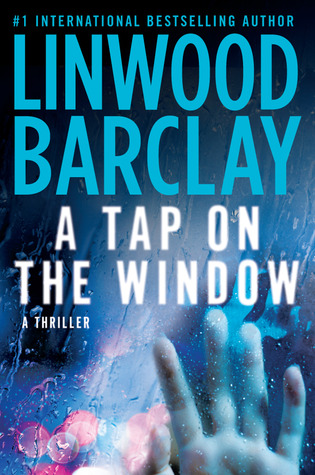 That's why a person "Mister" is threatening to throw into the Niagara River is panic-stricken in the conversation that opens Linwood Barclay's thriller, A Tap on the Window (New American Library/Penguin Group (USA), 2013). We don't know that person's fate before the scene shifts suddenly to the car containing our narrator, Cal Weaver, a middle-aged former cop who's now a private eye in Griffon, New York, a town of 8,000 about an hour from Buffalo. Of all people, Cal knows that picking up a teenage girl hitchhiking in the rain outside Patchett's Bar is a monumentally dumb thing to do. But he does it anyway, because when he opens the car window in response to her tap on the glass, she tells him she knew his son, Scott. Scott died when he fell off the roof of Ravelson Furniture two months earlier, and it has devastated Cal and his wife, Donna. Cal, determined to hear what Claire Sanders, the mayor's daughter, can tell him about Scott, lets her into his car.
That's why a person "Mister" is threatening to throw into the Niagara River is panic-stricken in the conversation that opens Linwood Barclay's thriller, A Tap on the Window (New American Library/Penguin Group (USA), 2013). We don't know that person's fate before the scene shifts suddenly to the car containing our narrator, Cal Weaver, a middle-aged former cop who's now a private eye in Griffon, New York, a town of 8,000 about an hour from Buffalo. Of all people, Cal knows that picking up a teenage girl hitchhiking in the rain outside Patchett's Bar is a monumentally dumb thing to do. But he does it anyway, because when he opens the car window in response to her tap on the glass, she tells him she knew his son, Scott. Scott died when he fell off the roof of Ravelson Furniture two months earlier, and it has devastated Cal and his wife, Donna. Cal, determined to hear what Claire Sanders, the mayor's daughter, can tell him about Scott, lets her into his car. Claire and Cal may as well have joined hands and jumped into the nearby Niagara River; this book's characters have about as much control over their fates as swimmers engulfed in the rapids near the Falls. Writer Barclay, a Canadian, often sets his thrillers on the American side of the border, and he isn't one to politely ignore American anxieties. Instead, he hoses his complex characters with them and turns their resulting behavior into a corkscrewing tale of suspense. We can even pity the victimizers, because they're also victims here. One story line—written in italics in short, separate chapters—involves what looks like an off-kilter private matter, before we understand how it meshes with the other story line Cal narrates about himself and small-town politics and life in Griffon.
Claire and Cal may as well have joined hands and jumped into the nearby Niagara River; this book's characters have about as much control over their fates as swimmers engulfed in the rapids near the Falls. Writer Barclay, a Canadian, often sets his thrillers on the American side of the border, and he isn't one to politely ignore American anxieties. Instead, he hoses his complex characters with them and turns their resulting behavior into a corkscrewing tale of suspense. We can even pity the victimizers, because they're also victims here. One story line—written in italics in short, separate chapters—involves what looks like an off-kilter private matter, before we understand how it meshes with the other story line Cal narrates about himself and small-town politics and life in Griffon.




















